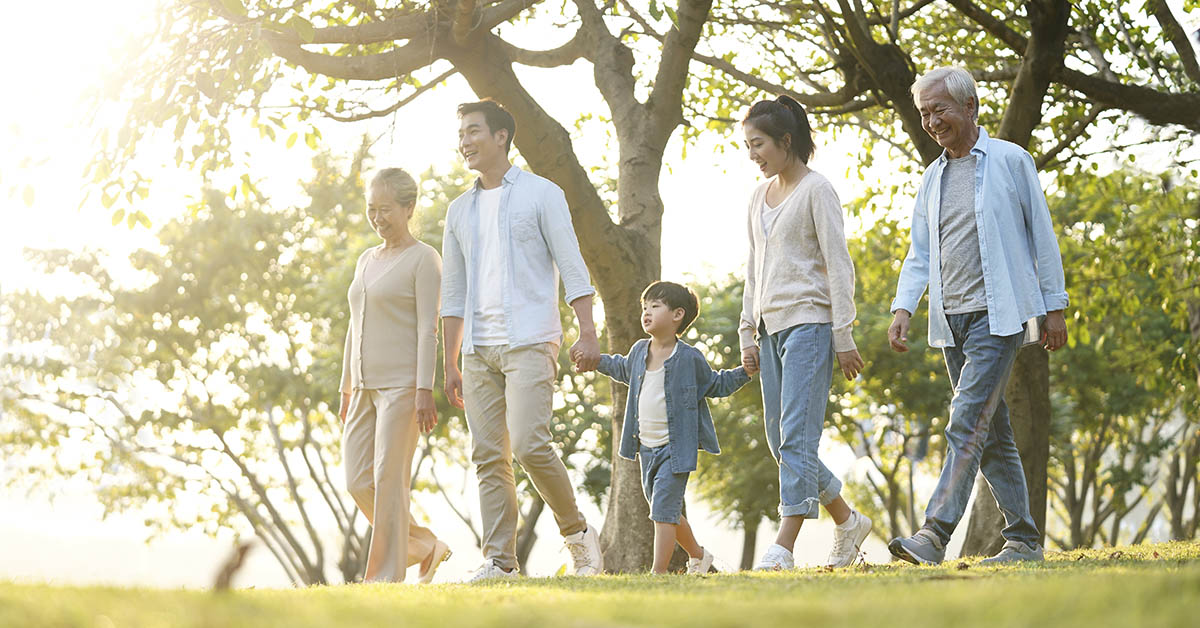
What Precautions Do COVID-19 Vaccinated Cancer Patients Need to Take?
-
The development of safe and highly effective COVID-19 vaccines has provided a path to ending this pandemic. Over the last year, masking and physical distancing have become a normal part of life. Now, as more people are becoming vaccinated, we are re-evaluating the precautions that are necessary as we go about our lives.
Recently, the Centers for Disease Control and Prevention (CDC) updated guidelines for those who have been fully vaccinated (are two weeks post-vaccination with all required doses) against COVID-19. This includes endorsing those who are fully vaccinated resuming various activities, including spending time with family members and friends without wearing masks or physically distancing, even indoors.
The updated CDC guidelines are exciting, but we know that many of our patients have questions about what they mean for those currently undergoing cancer treatment and those who have had cancer treatment in the past.
Dr. Martin J. Edelman, Fox Chase’s Chair of the Department of Hematology/Oncology, has the answers:
Should Cancer Patients Still Take Precautions Even after Receiving the COVID-19 Vaccine?
All three COVID-19 vaccines that have received Emergency Use Authorization (EUA) by the FDA (Moderna, Pfizer/BioNTech, and Johnson & Johnson) have been shown to be both safe and highly effective. These vaccines have been documented to prevent infection in the vast majority of people. For the very few who have been vaccinated and who do become infected, serious illness and death are extraordinarily rare. But even so, none of the vaccines available offers 100% effectiveness against infection from COVID-19. Even if you have been fully vaccinated, there is a very small risk that you can become infected with the SARS-CoV-2 virus that causes COVID-19. For some patients—those who are receiving an immunosuppressive therapy or those with certain blood cancers (such as leukemia, lymphoma, or multiple myeloma)—certain precautions will need to remain.
“Even before the COVID-19 pandemic began, we have always told patients who have a primary blood cancer or who are getting immunosuppressive therapies to avoid those who are sick, stay away from crowded areas, and take reasonable precautions, such as physical distancing indoors, washing their hands frequently, and masking in some circumstances,” explained Edelman. “COVID-19 is just one virus out of many other viruses that we are concerned with in this population. So, even if these patients have received the COVID-19 vaccine, our recommendations remain the same.”
What Does This Mean for a Cancer Patient or Survivor Who Is Fully Vaccinated?
- If you have had cancer in the past and are considered to be disease free or cured (no evidence of disease, not on treatment): You can feel comfortable following the updated CDC guidelines and, as a fully vaccinated individual, resuming activities both indoors and outdoors without masking (except when required by certain rules or guidelines put in place by a venue or business, such as in hospitals and healthcare facilities).
- If you are a cancer patient receiving immunotherapy, chemotherapy, targeted therapy, radiation, or have undergone or are undergoing a bone marrow transplant (BMT): Discuss your specific situation with your physician to determine whether the treatment you are undergoing actively suppresses your immune system. If this is the case, it will likely be recommended that you continue to take certain precautions, including wearing a mask when in close proximity to others who have not been vaccinated.
“It’s important to remember that this virus is transmitted through person-to-person contact. The highest risk for getting COVID-19 comes when we are in close proximity to people who may be infected for long periods of time,” Edelman said. “In general, outdoor activities where there is plenty of air circulation and significant space between people can be thought of as a safe activity, especially if everyone is vaccinated.”
Moving Toward the End of the COVID-19 Pandemic
As we enter into this new normal, remember that your care team is always there to answer questions about your specific situation.
Most importantly, if you have yet to receive the COVID-19 vaccine, it is best to consider doing so and discuss any concerns you have with your care team.
“We are encouraging everyone to receive the COVID-19 vaccine. It is the most important step you can take to protect yourself from this disease,” Edelman said. “We know that these vaccines protect most people from severe infection and hospitalization, and that is the most important thing.”
